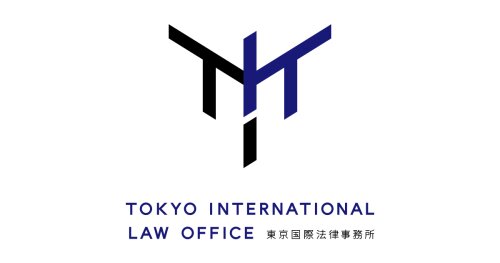Best ESG Advisory & Compliance Lawyers in Japan
Share your needs with us, get contacted by law firms.
Free. Takes 2 min.
Or refine your search by selecting a city:
List of the best lawyers in Japan
About ESG Advisory & Compliance Law in Japan
ESG stands for Environmental, Social, and Governance, which represent key factors companies must consider to operate responsibly and sustainably. ESG Advisory & Compliance law in Japan is a rapidly evolving field that helps organizations meet social responsibilities, address environmental challenges, and ensure good governance. In recent years, Japan has seen an increased global and domestic demand for strong ESG practices. Businesses in Japan are now expected to comply with ESG regulations, disclose ESG-related information, and address investor and consumer concerns about environmental and social impact. ESG advisory and compliance services assist companies in understanding legal requirements, implementing best practices, and maintaining transparency in their operations.
Why You May Need a Lawyer
There are many situations where seeking legal advice in ESG Advisory & Compliance can be vital:
- Your company is preparing for or undergoing an ESG audit or regulatory review.
- You need to draft or update internal codes of conduct or ESG-related policies.
- Your business wants to implement sustainability initiatives and ensure compliance with relevant laws.
- You are facing cross-border mergers, acquisitions, or investments where ESG considerations are scrutinized.
- Your company must disclose non-financial information in line with Japanese or international standards.
- You are responding to stakeholder or shareholder inquiries about ESG issues or compliance.
- You want to assess ESG risks and develop strategies for responsible corporate governance.
A knowledgeable ESG lawyer can help navigate complex regulatory frameworks, recommend best practices, and protect your organization from legal risks.
Local Laws Overview
Japan has introduced several laws and guidelines related to ESG matters. Some of the most significant regulatory and policy developments include:
- Financial Instruments and Exchange Act (FIEA): Requires certain listed companies to disclose sustainability-related information in their annual securities reports.
- Corporate Governance Code: Recommends that Japanese listed companies address sustainability and respond to social and environmental issues in corporate management.
- Environmental Regulations: Japan has strict rules on waste management, carbon emissions, and resource efficiency. Companies must comply with these laws in their operations.
- Non-Financial Disclosure Requirements: Mandatory ESG disclosures for listed companies are being phased in, including climate-related risk disclosures in line with the Task Force on Climate-related Financial Disclosures (TCFD) framework.
- Anti-Corruption & Human Rights: Japan is party to international conventions against corruption, and its foreign bribery and human rights standards are increasingly aligned with international norms.
Failure to comply with these laws can result in legal penalties, reputational risk, and loss of business opportunities.
Frequently Asked Questions
What is ESG compliance?
ESG compliance refers to a company's adherence to legal, regulatory, and voluntary standards related to environmental protection, social responsibility, and corporate governance.
Are ESG regulations mandatory in Japan?
Some ESG regulations are mandatory, especially for publicly listed companies, such as non-financial disclosures and governance requirements, while others are industry-standard or voluntary.
What reporting standards are used for ESG disclosures in Japan?
Japanese companies often follow frameworks such as the TCFD, GRI (Global Reporting Initiative), and standards set by the Securities and Exchange Surveillance Commission or Tokyo Stock Exchange.
Who oversees ESG compliance in Japan?
Regulatory bodies such as the Financial Services Agency, Ministry of the Environment, and the Tokyo Stock Exchange play key roles in oversight.
What are the consequences of failing to comply with ESG laws?
Non-compliance can lead to administrative penalties, legal sanctions, loss of investor confidence, and brand reputation damage.
How can a lawyer assist with ESG compliance?
A lawyer can provide advice on regulatory requirements, help prepare documentation, develop internal policies, and represent companies in investigations or disputes.
Are private companies required to comply with ESG standards?
While requirements are stricter for listed companies, private companies are increasingly expected to follow ESG standards by investors, partners, and stakeholders.
Is there a timeline for introducing new ESG requirements in Japan?
Japan continues to enhance ESG rules, with phased implementation for new disclosure obligations and growing alignment with international standards.
Can international investors demand ESG compliance from Japanese companies?
Yes, foreign investors often expect Japanese companies to meet global ESG standards as a prerequisite for investment.
How can companies stay updated on changing ESG regulations?
Regular consultation with legal advisors, involvement in industry organizations, and monitoring of government and stock exchange updates are recommended.
Additional Resources
For further information and guidance, consider reviewing resources from these organizations:
- Financial Services Agency (FSA) - Oversees financial sector ESG requirements
- Ministry of the Environment (MOE) - Provides guidance on environmental and sustainability practices
- Tokyo Stock Exchange (TSE) - Issues governance codes and ESG listing requirements
- Japan Exchange Group (JPX) - Offers ESG-related policy updates
- Japan Business Federation (Keidanren) - Shares best practices and advocacy for responsible business
- Japan Sustainable Investment Forum (JSIF) - Promotes sustainable investment and offers educational materials
Next Steps
If you need legal assistance with ESG Advisory & Compliance in Japan, consider these steps:
- Identify your main ESG risks and compliance needs within your business operations.
- Prepare relevant documents such as policies, annual reports, and stakeholder communications.
- Contact a lawyer or legal firm specializing in corporate compliance, ESG, or sustainability law.
- Schedule a consultation to discuss your goals, current practices, and areas for improvement.
- Work with your legal advisor to develop a compliance roadmap, including meeting disclosure requirements and adopting best practices.
- Stay informed about changes to local and international ESG standards and update your practices accordingly.
Seeking legal guidance can help your organization avoid pitfalls, meet obligations, and achieve long-term sustainable success in Japan’s evolving ESG landscape.
Lawzana helps you find the best lawyers and law firms in Japan through a curated and pre-screened list of qualified legal professionals. Our platform offers rankings and detailed profiles of attorneys and law firms, allowing you to compare based on practice areas, including ESG Advisory & Compliance, experience, and client feedback.
Each profile includes a description of the firm's areas of practice, client reviews, team members and partners, year of establishment, spoken languages, office locations, contact information, social media presence, and any published articles or resources. Most firms on our platform speak English and are experienced in both local and international legal matters.
Get a quote from top-rated law firms in Japan — quickly, securely, and without unnecessary hassle.
Disclaimer:
The information provided on this page is for general informational purposes only and does not constitute legal advice. While we strive to ensure the accuracy and relevance of the content, legal information may change over time, and interpretations of the law can vary. You should always consult with a qualified legal professional for advice specific to your situation.
We disclaim all liability for actions taken or not taken based on the content of this page. If you believe any information is incorrect or outdated, please contact us, and we will review and update it where appropriate.
Browse esg advisory & compliance law firms by city in Japan
Refine your search by selecting a city.

















